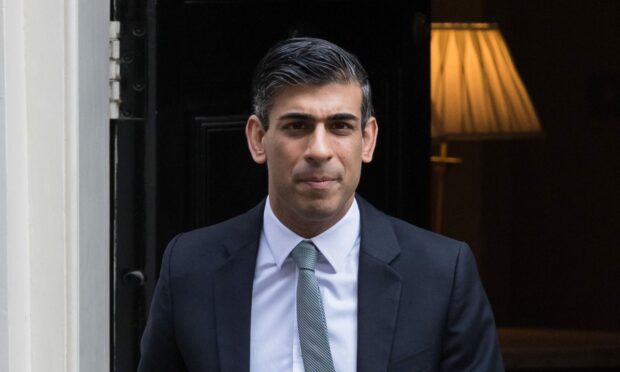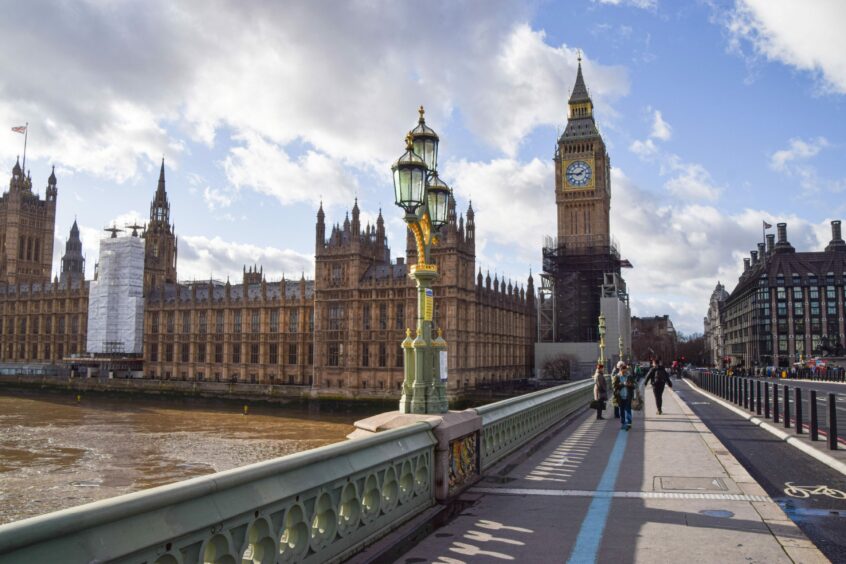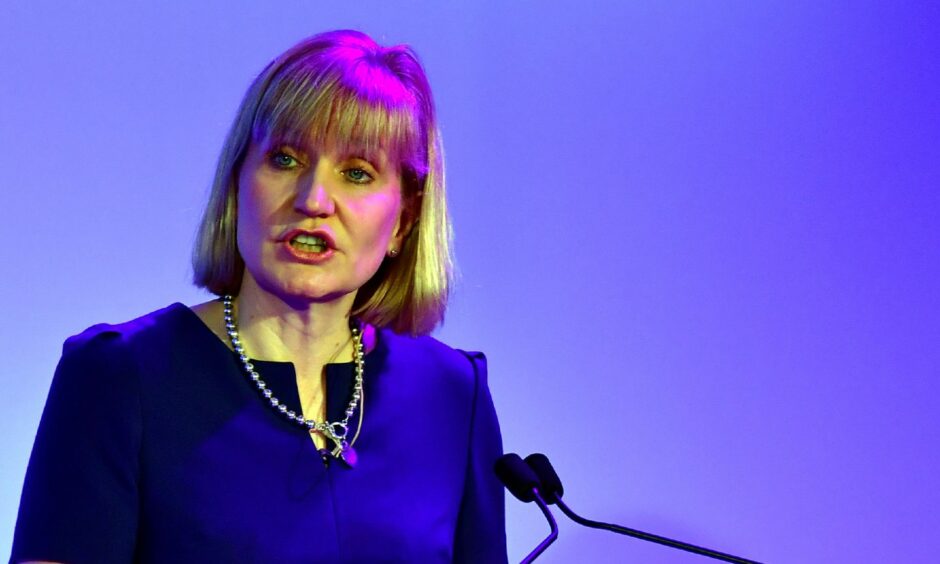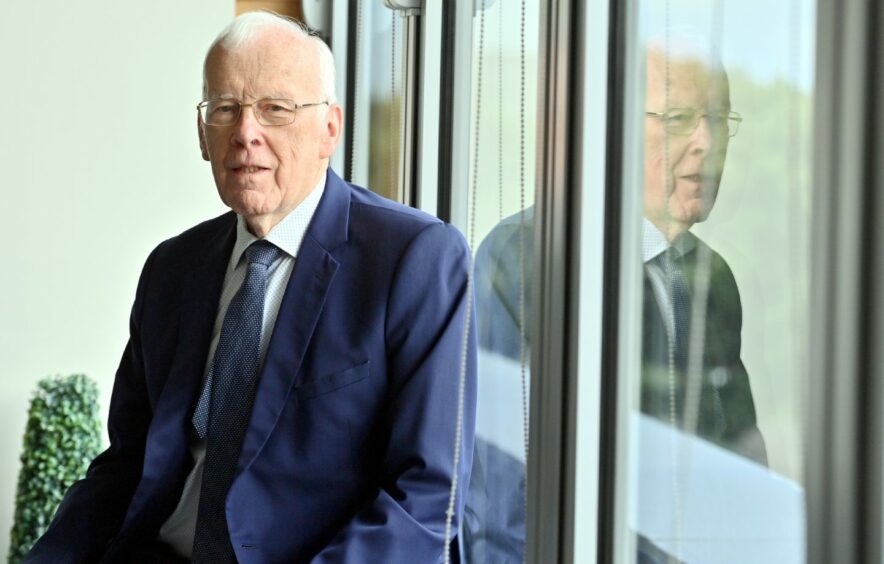Chancellor Rishi Sunak has finally unveiled a multibillion-pound windfall tax on the profits of the North Sea oil and gas industry to help deal with the cost-of-living crisis.
The “temporary” measures will raise around £5 billion in revenue over the next year, the chancellor said.
It will allow measures including payments of £650 to be distributed to eight million low-income households.
The high inflation we’re experiencing now is causing acute distress to people in this country.”
Rishi Sunak, chancellor.
Additional payments are to be made to people with disabilities and pensioners.
And a £200 scheme to support every UK household is to be doubled to £400, but none will need to be repaid.
In a speech in the House of Commons, Mr Sunak said the UK was “acutely exposed to the European energy price shock”.
He added: “The high inflation we’re experiencing now is causing acute distress to people in this country.
“The oil and gas sector is making extraordinary profits, not as a result of risk-taking and efficiency, but as a result of surging global prices as a result of Russia’s war.”
‘Sensible middle ground’
The chancellor said he was “sympathetic” to taxing companies fairly but added: “As ever, there is a sensible middle ground.
“The new levy will be charged on oil and gas companies at a rate of 25%, it will be temporary and when oil and gas prices return to historically more normal levels, the levy will be phased out, with a sunset clause written into the legislation.”
Built into the levy is a new investment allowance to incentivise investment – meaning firms will be taxed less, the more that they invest.
“Companies will have a new and significant incentive to reinvest their profits,” Mr Sunak said.
He added: “We are nearly doubling the overall investment relief for oil and gas companies, that means for every pound a company invests, they’ll get back 91p in tax relief.
“So the more a company invests, the less tax they will pay.”
Offshore Energies UK condemned the windfall tax, calling it a “disappointing and worrying development”.
Deirdre Michie, the trade body’s chief executive, said the impact would be “felt in offshore energy jobs and communities, and by consumers, for years to come”.
Ms Michie added: “In April we welcomed the government’s British Energy Security Strategy, which pledged ‘Secure, clean and affordable British energy for the long term’.
“We thought long-term meant years or decades, but it seems to have meant just a few weeks.”
Energy industry veteran Sir Ian Wood warned of the damage the new tax may do to domestic supply and net-zero.
He added: “A one-off windfall tax – an additional 25% tax hike – is a very significant increase and will undoubtedly result in some projects being shelved, as well as reducing investor confidence in the oil and gas industry.
“This will have implications for security of oil and gas supplies into the UK.
“Also our oil and gas activities are definitely having a positive impact on developing the new energies and slowing these down right now will have an adverse effect on meeting net-zero targets.”
Aberdeen and Grampian Chamber of Commerce policy director Ryan Crighton said: “In the short-term, taking an additional £5bn from a sector already taxed at 40% will achieve very little apart from making the North Sea – already one of the world’s most mature basins – less attractive to investors.
“Tax and fiscal stability, above all else, really matter in a globally competitive investment market, and today we’ve shot ourselves in the foot.”
Scottish Chambers of Commerce chief executive Liz Cameron said: “Scotland’s businesses warned about the damaging impact that any sort of additional windfall tax on energy companies would have on the economy and our ability to secure a successful energy transition that protects jobs and communities.
“It is extremely disheartening the UK Government has chosen to introduce this additional levy, which will inevitably deter investment and make Scotland and the UK a less attractive market internationally, adding to the pressures facing the business community.
“Whilst it’s right that the Government take steps to ease the cost of living crisis, this levy is a short-term solution to the long-term energy challenges businesses and consumers continue to face.”
Shadow chancellor Rachel Reeves said the policy came five months after Labour proposed such a levy, and cited BP chief executive Bernard Looney describing oil and gas as a “cash machine”.
The widely expected measures have been dreaded by the industry for months.
Earlier this month, MPs voted down a Labour bid to impose a windfall tax on oil and gas firms – prompting opposition leader Keir Starmer to say a U-turn was “inevitable”.
Rocketing household bills
Politicians are scrambling to find a way to support households in the cost-of-living crisis, particularly those on low income, as energy and other essential bills skyrocket.
Market regulator Ofgem warned this week that typical energy bills could rise to £2,800 a year, an increase of £800 from October, causing millions of people to be plunged into fuel poverty.
North-east business leaders had urged the government not to introduce a windfall tax, warning it would harm investment in energy security and undermine efforts to deliver net-zero.






Conversation